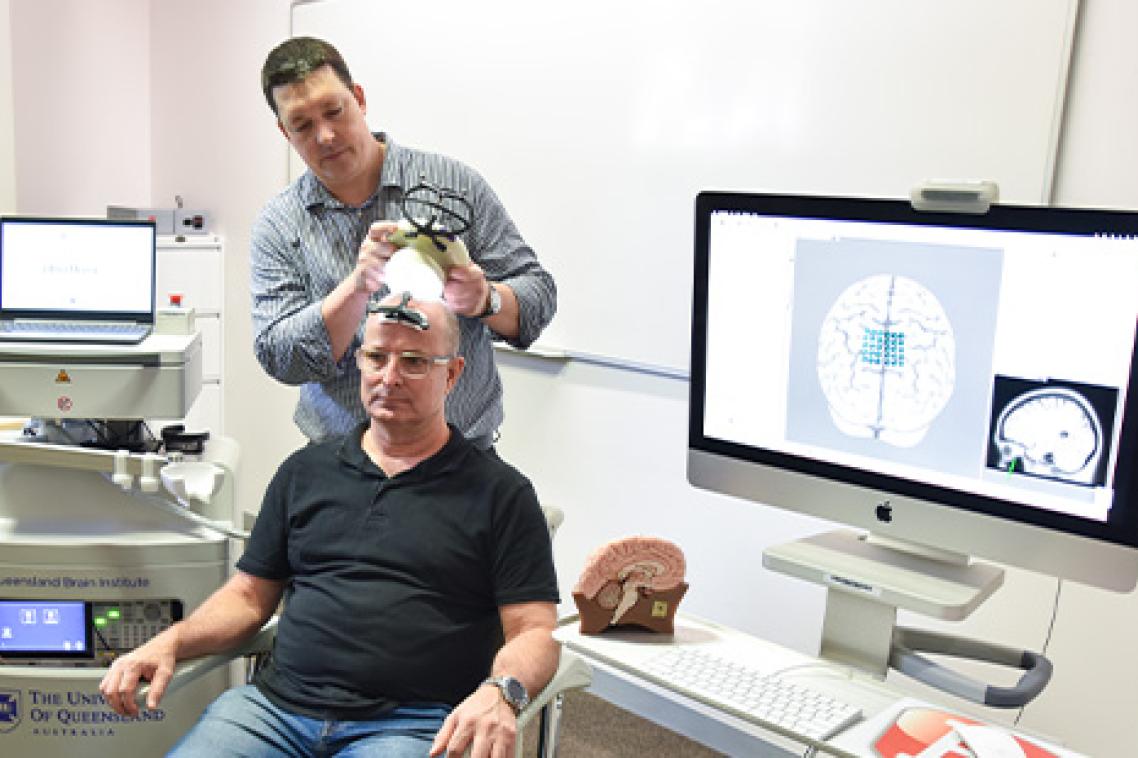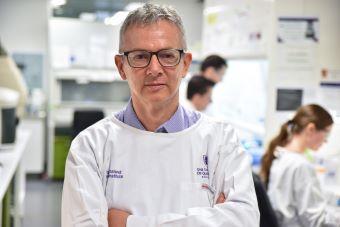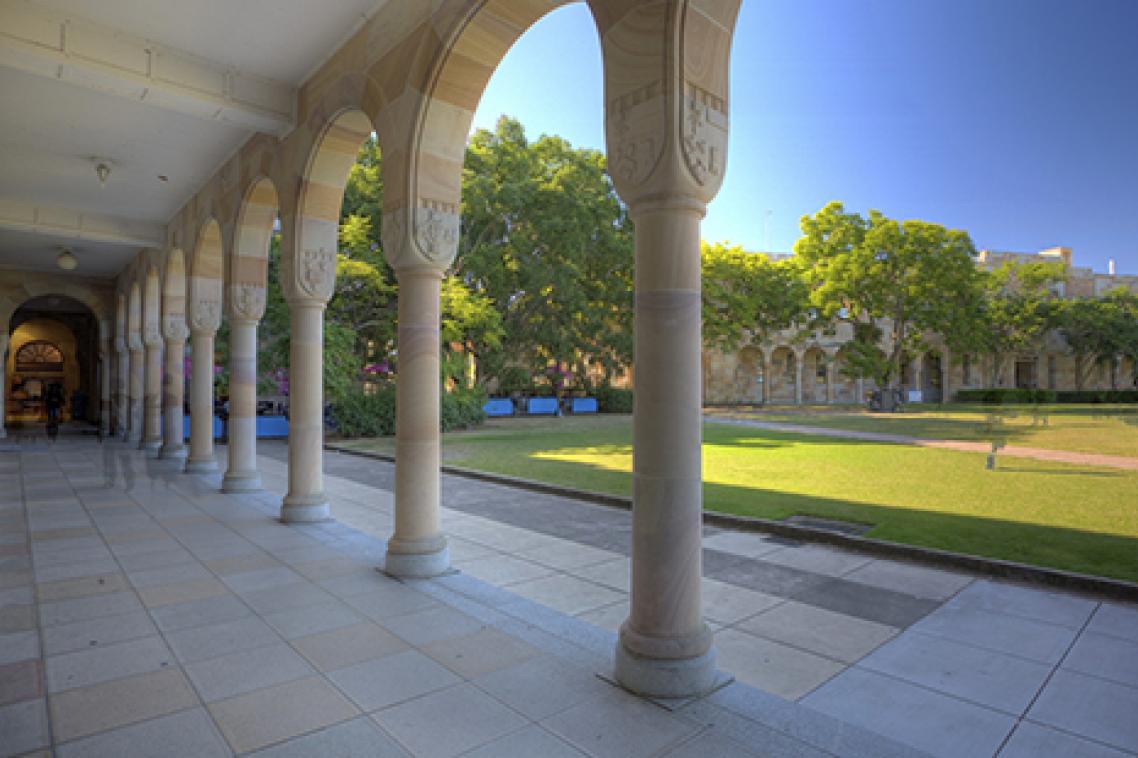UQ ultrasound treatment for Alzheimer's licensed to new startup

UQ researcher Mr Matt Pelekanos demonstrates the therapeutic ultrasound device.
A promising ultrasound therapy to potentially restore brain function in people with Alzheimer's disease has been licenced to a new startup spun out of The University of Queensland.
The therapeutic ultrasound technology developed by Professor Jürgen Götz from UQ’s Queensland Brain Institute will be progressed toward clinical use by Ceretas, with the company aiming to validate the system to treat Alzheimer’s and other neurodegenerative diseases.
The technology uses targeted pressure waves from sound to activate the brain’s ability to increase neuronal signalling and clear pathological proteins that accumulate in people with Alzheimer’s disease.
“The therapy increases neuronal signalling and thereby restores memory and cognition by enhancing communication between brain cells,” Professor Götz said.
“But it also targets and clears the build-up of the proteins toxic amyloid and tau by activating the brain’s intrinsic clearance mechanism.”
The global incidence of dementia is predicted to reach 82 million by 2030 with an estimated 80 per cent of people with dementia having Alzheimer's, characterised by cognitive impairment and memory loss.

Professor Jürgen Götz.
Professor Götz said current medications target disease progression and symptoms but don’t offer patients a cure.
“Therapeutic ultrasound offers a non-invasive way of enhancing cognition,” he said.
“The treatment could also potentially be personalised across multiple neurological disorders including frontotemporal dementia (FTD), amyotrophic lateral sclerosis (ALS), disorders caused by brain tumours and mental disorders.”
The first human clinical safety trial of the novel ultrasound medical device was successfully completed in 2024, led by QBI clinician-researcher Professor Peter Nestor.
The trial results are expected to be published in early 2025.
Ceretas was formed by UQ’s commercialisation company UniQuest in partnership with early-stage investors and co-founders Ryan Laws and Sam Wetzler.
Mr Laws said taking the therapeutic ultrasound treatment further was an exciting prospect.
“It’s not often that you see potentially game-changing technology coupled with brilliant people, looking to address a market that only seems to set to expand so this opportunity has me very excited,” Mr Laws said.
UniQuest CEO Dr Dean Moss said it was gratifying to see the therapeutic ultrasound technology progress to the clinic with investor backing.
“With an ageing population leading to an increase in neurodegenerative diseases like Alzheimer's, it is testament to the quality of UQ research that potential new treatments are attracting investment to make a genuine difference,” Dr Moss said.
The researchers would like to recognise the team at QBI’s Clem Jones Centre for Ageing Dementia Research (CJCADR) who have been pivotal in advancing this research to its current stage.
The support from both the government and donors is what continues to drive their progress.
Related articles

UQ researchers and partners secure $3m in CRC-P grants

Change my mind: study finds it’s possible to teach students good decision-making
Media contact
UQ Communications
communications@uq.edu.au
+61 429 056 139
